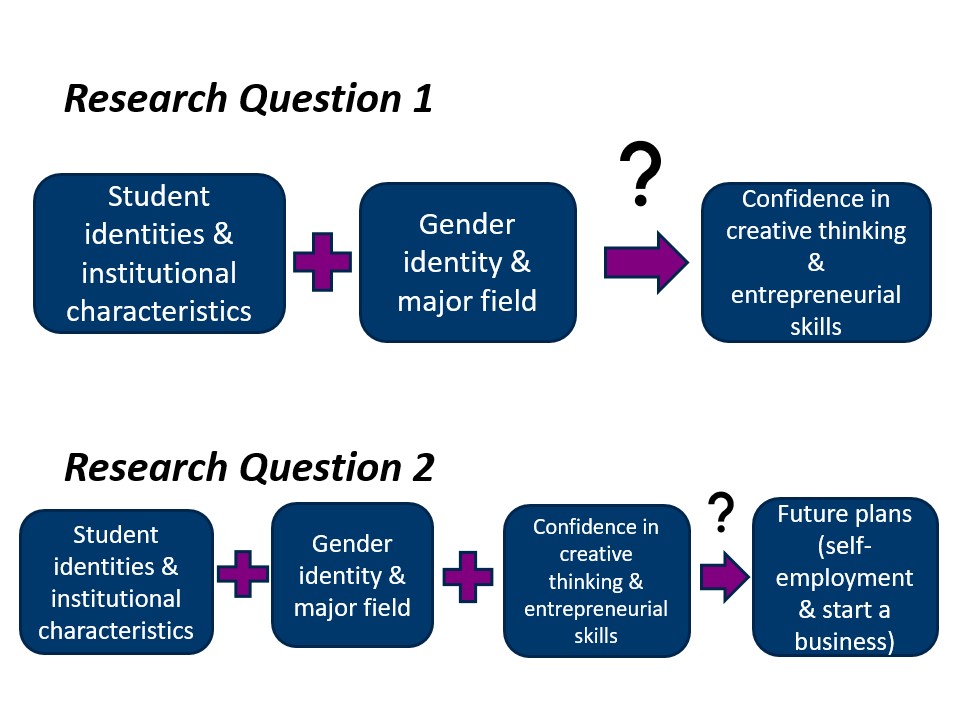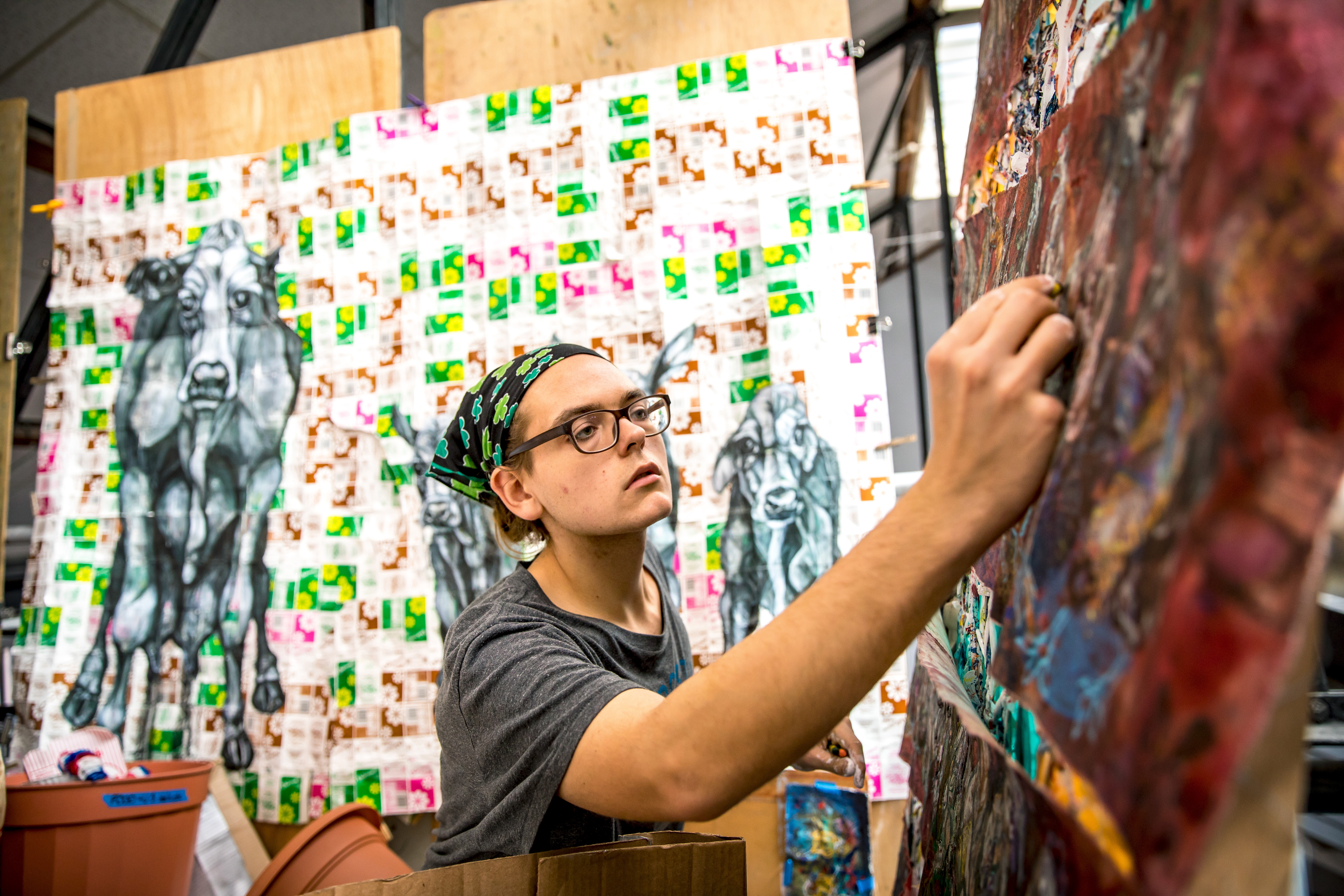Entrepreneurship Education recently published an article exploring how gender identity and major field were able to predict confidence in creative thinking and entrepreneurial skills, as well as students plans for self-employment and starting a business. Authored by NSSE research scientist Angie Miller and Mondragon University postdoctoral researcher Paula Alvarez Huerta, this paper used data from the Senior Transitions NSSE Topical Module.
Although a considerable amount of the research on entrepreneurship training looks at specific fields, such as business, there has been a drive to incorporate entrepreneurship into the wider curriculum (Roberts, 2012). There are also differences for gender, as women generally show less confidence in their entrepreneurial abilities (Nowiński et al., 2019). Creativity is another element in developing entrepreneurial careers (Smith et al., 2016), and recent research using NSSE data indicates that exposure to creative coursework exposure can predict plans for starting business and self-employment (Miller & Alvarez Huerta, 2022).
Given the previous research, there was a need to explore unique impact of gender and major on future entrepreneurial plans, while also accounting for confidence in skills. Building on past findings, this study addressed two research questions:
- Does gender identity and academic major influence student creative and entrepreneurial self-beliefs, even when controlling for other demographic and institutional characteristics?
- Does gender identity, academic major, and creative and entrepreneurial self-beliefs influence student intentions to follow entrepreneurial career paths, even when controlling for other demographic and institutional characteristics?

The data used in this study were from the 2019 and 2020 NSSE administrations. Responses were available from over 74,000 seniors attending 264 baccalaureate-granting institutions, who mirrored the overall NSSE sample in terms of demographic characteristics. The core survey asks students to report their academic major and gender identity, whereas the Senior Transitions module asks about confidence in skills and abilities and future career plans. Specifically, the module asks How much confidence do you have in your ability to complete tasks requiring the following skills and abilities? with Creative thinking and problem solving and Entrepreneurial skills as two of the items in a list of ten. The module also asks about future plans: Do you plan to be self-employed, an independent contractor, or a freelance worker someday? and Do you plan to start your own business (nonprofit or for-profit) someday?
To address the first research question, regression models (controlling for other student- and institution-level variables) showed that men were significantly higher in confidence for both creative thinking and entrepreneurial skills. Additionally, arts and humanities, communication, education, engineering, social science majors were higher for creative confidence. Conversely, business majors were highest for entrepreneurial confidence while arts and humanities, education, and engineering majors were among the lowest.
The second research question incorporated all of these variables from the first model, using them to predict seniors’ future plans for self-employment and starting a business. These models showed that women were less likely to have plans for self-employment and starting a business, whereas those with a nonbinary gender identity were slightly more likely. Men were also more likely to plan for starting a business. For academic major, arts and humanities, social science, communication, and business majors were more likely to have these future plans, compared with education and social service majors who were less likely. Not surprisingly, those higher in both creative and entrepreneurial skills confidence were also more likely to have these plans, although entrepreneurial confidence was a much stronger predictor in magnitude.
These results mirror much of the previous research and highlight the relevance of promoting creative thinking and entrepreneurial skills among university students. Given the gaps in confidence for certain majors and genders in comparison with their future plans, there may be a need to design specific initiatives to increase creative and entrepreneurial confidence within those groups currently at a disadvantage. There may also be a need for differentiated career advising strategies to address entrepreneurial intentions and explore how these non-traditional careers may appeal to some groups.
Does your institution have data from the Seniors Transitions Topical Module? If you have explored your own seniors’ plans for future entrepreneurial career paths, please share your findings with us!


